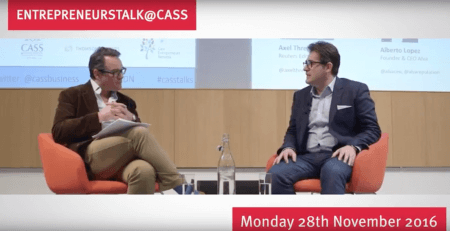alva speaks on business resilience at Ernst & Young Risk Leaders Forum
In February 2016, Ernst & Young hosted the latest of its Risk Leaders Forum events, focusing on the subject of “How organisations can become more resilient in order to protect shareholder value and reputation”.
The background to the event was the increasing regularity with which high-profile organisations have fallen prey to major incidents such as cyber-attacks, product failures, financial scandals or regulatory breaches. These incidents have not only resulted in hits to the bottom line but also a real loss of trust with customers, shareholders, employees and suppliers. In some cases the effects of these incidents extend beyond the organisation itself and have the potential to damage the market on a wider basis.
Ernst & Young invited alva’s Chairman, Andrew Vickerman, to participate on the event’s panel. Andrew spent almost 20 years with Rio Tinto, with responsibility for all aspects of corporate reputation and risk and played a leading role in developing industry-wide initiatives addressing reputation issues. The panel was encouraged to focus on responding to the following questions:
- What (if anything) are organisations missing from their risk controls?
- How can they be better prepared?
- How can businesses ensure lessons that have been identified are learned?
Andrew introduced his section by referencing the Harvard Business Review’s definition of business resilience:
“Strategic resilience is not about responding to a one-time crisis. It’s not about rebounding from a setback. It’s about continuously anticipating and adjusting to deep, secular trends that can permanently impair the earning power of a core business. It’s about having the capacity to change before the case for change becomes desperately obvious.” Gary Hamell & Liisa Valikangas, Harvard Business Review, September 2003.
This is even more relevant to today’s businesses which are faced by an increasing level of complexity – and therefore risk – thanks to the rise of digital communications and the advancement of technology.
Drawing on his experience in the extractives industry, Andrew stressed that a global mining company can only survive if it has continuous access to mineral deposits, as well as finance and people. Access requires innumerable regulatory approvals and also broader community consent not as a one-off but on a continuous basis. Building and maintaining a reputation not only for technical expertise but also for environmental and social responsibility is therefore critical for a mining company, as it also is for other resource companies with very long-life assets.
Reputation management must therefore cover a range of stakeholder constituencies in a variety of countries and locations. The company has a number of ‘reputations’ to manage and protect while also recognising the risk of issues in one location with one stakeholder group impacting in other locations. Reputation management is thus integral to proactive risk management and ensuring resilience.
“My experience over more than thirty years has persuaded me not only of the necessity of a proactive approach to reputation management, involving mapping and understanding of diverse stakeholder groups as well as the changes that occur in perceptions and sentiment amongst stakeholder groups. Now these changes can occur much quicker and travel through faster with the growth of social media. We can never be sure we know what perceptions will be in the future, even tomorrow.
There are various ways for companies to understand and assess their reputations, through quantitative and qualitative research, media monitoring, focus groups, etc., but I always saw the absence of good data as a real challenge. This is where alva plays a vital role – in providing business intelligence, monitoring and analysis to help companies better understand their reputation and continuously track perceptions vis-à-vis their competitors”.
In building and managing stakeholder relationships, it is the perception of these groups which largely matters, not necessarily the facts of the situation. To emphasise this point, Andrew described what he terms as the “Trust Deficit” – essentially the gap between how the business sees itself with how its stakeholders see it. While there is often likely to be a gap between these two points, it is vital that the divergence does not grow too great as when a substantial trust deficit opens up, the company’s reputation and relationship with that stakeholder group is at risk.
To receive future updates on alva news, events or insights join the alva Community
Be part of the
Stakeholder Intelligence community








